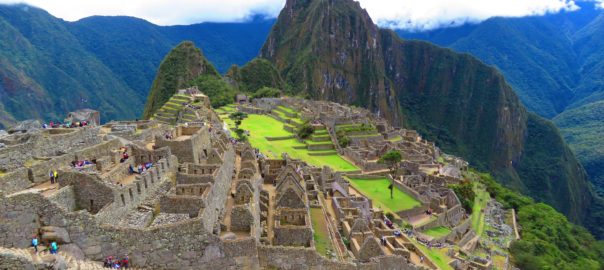When I heard of Elizabeth Jenkins I thought, “Yeah just one more of those inspirational women.” Once I looked into it I realised she was completely in a league of her own! With quitting her Phd. and trekking through the treacherous Andean mountains to meet one of the rarest spiritual teachers of South America and becoming a world renewed spiritual teacher herself, to also becoming an organic farmer, famous writer, mother and successful business woman, Elizabeth is definitely one of a kind. I could not help but read all of her books in one breath and interview her, immediately!
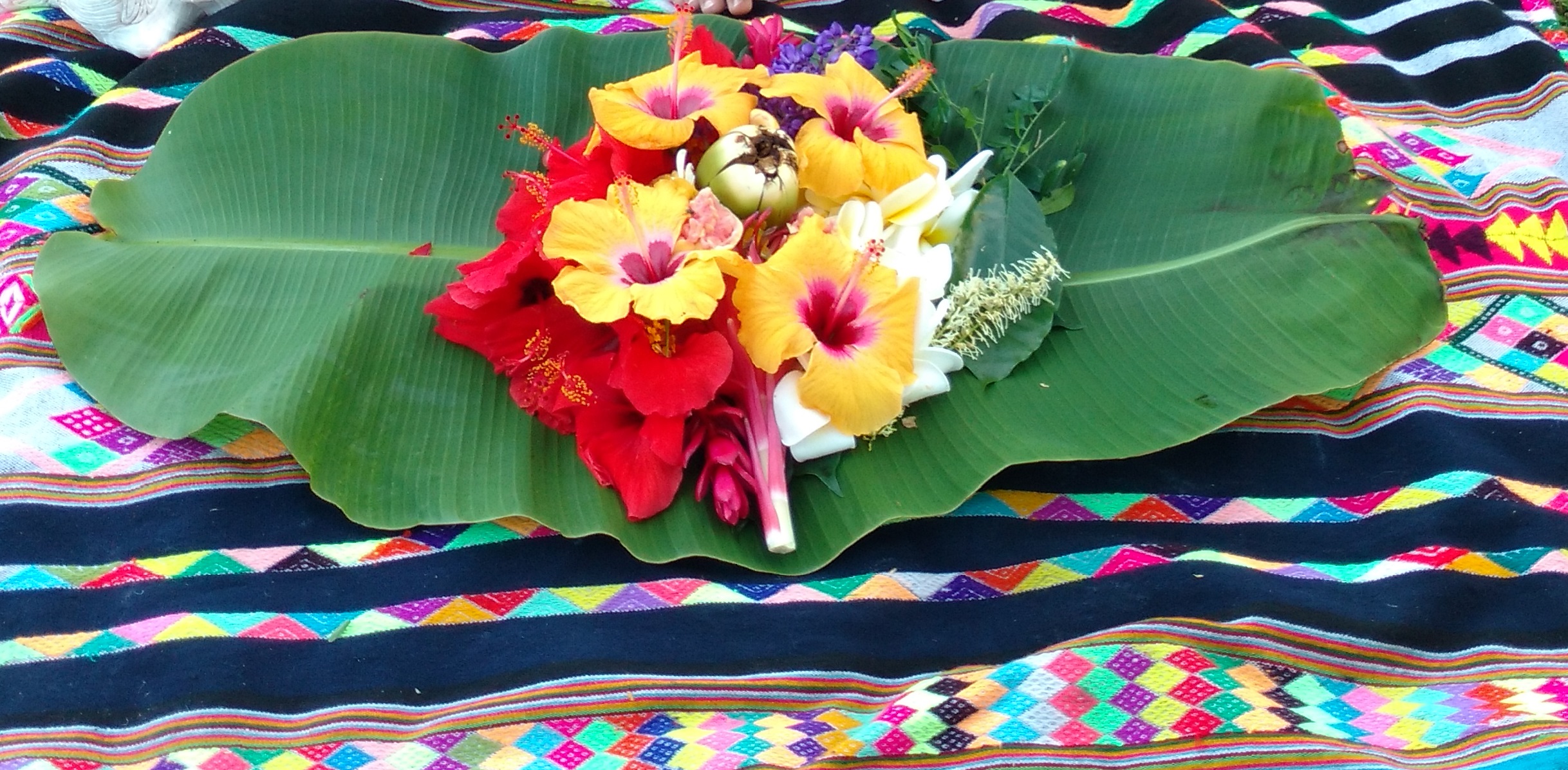
Spiritual offering of beautiful Hawaiian flowers
For us in Britain, Elizabeth is not a celebrity, but this is perhaps all about to change soon. Elizabeth’s adventure started by quitting her PhD research in Psychology and following what she expresses as her ‘call to go to Peru’. It takes quite a gutsy woman to pick up her bags and leave an exceptionally orderly life behind in the States, all with a fabulous future and promise of financial security, and follow her dream into the unknown. To then proceed into lifelong adventure in a country she didn’t know with a people and culture alien to her is another level of brave. Elizabeth did just that. She spent many years in the Andes training with what they in Peru call paqo(s)– the master, healer and priest. She transformed from (yet another) gringo to a paqo herself, but not without many years of training and living with the Quero people in the harsh climate at high altitude.
Eventually, she went back home to the US, trying to return to her ‘normal’ job and after a long spiritual journey she is now living in Hawaii. Elizabeth has become a world renowned spiritual teacher, a ‘bridge’ between Peru and the West, a world famous author of extraordinary books, novelist and also an organic farmer and a business woman. She runs the Wiraqocha Foundation in aid of preserving native spirituality. She teaches all over the World and still leads trips to Peru.
Her life is far more than interesting, in fact it is fascinating. Berkshire Woman was intrigued and wanted to know more. Lets hear it from Elizabeth herself. Here is the interview with some stunning images from her farm in Hawaii…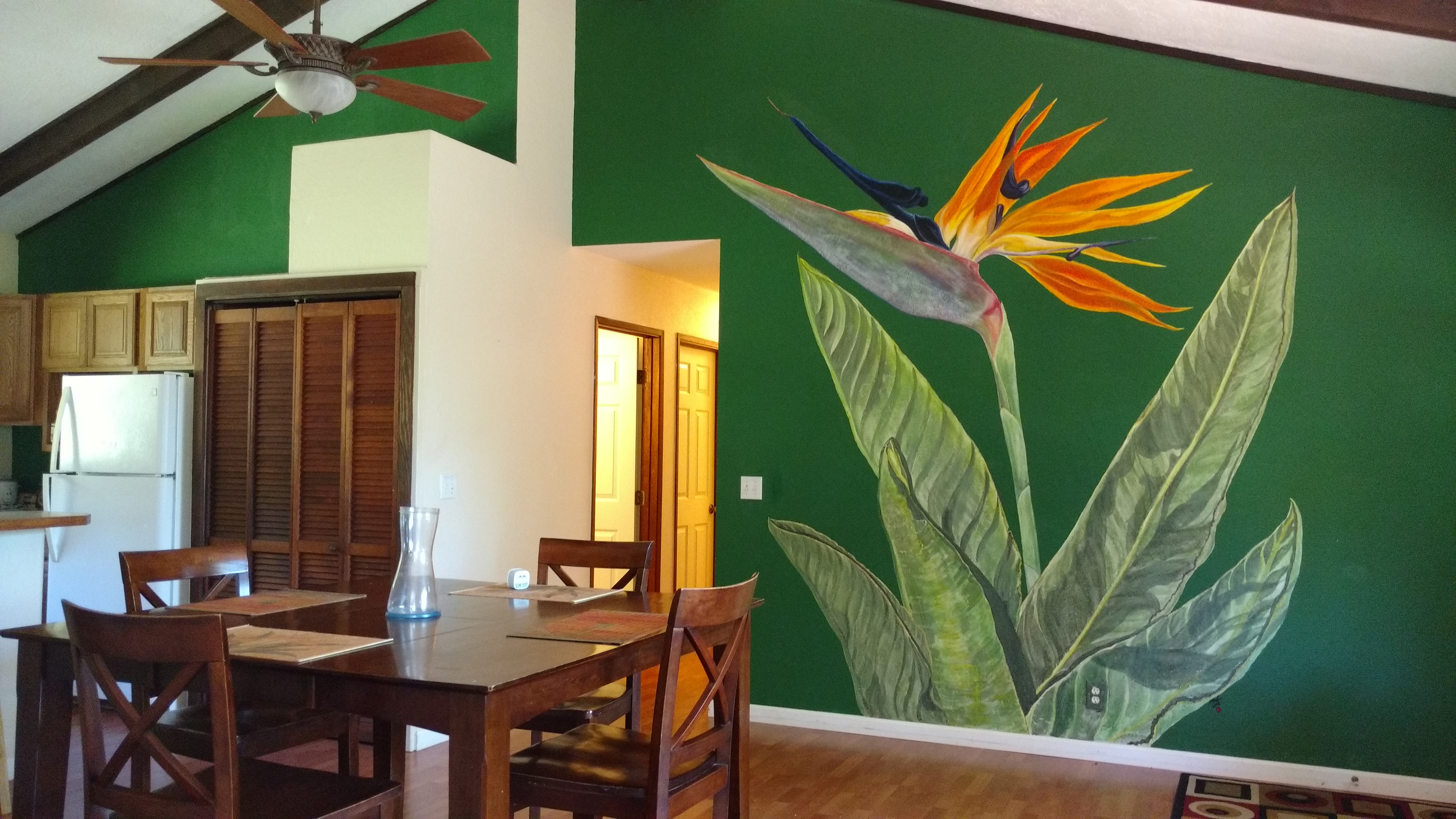
Elizabeth’s farmhouse on the Big Island
BW : Hi Elizabeth, thank you for agreeing to this interview. I am not quite sure where to begin. Your story goes back many years and is an incredible one at that. Shall we start by making clear to our readers what your background is, academically? Do we say you are a Psychologist, or were one, to start with?
EJ: I have a Masters in Integral Psychology and an MFT license that granted, I no longer use (the license that is), so I call myself an Author/ Organic Farmer and Founder/Director of Wiraqocha Foundation for the Preservation of Indigenous Wisdom. I am also the Mom of two teenage boys, Gabriel and Samuel.
BW: What happened for you to decide to leave everything and go to Peru? Do you remember what was the actual thought that triggered it?
EJ: Absolutely! I was getting very bored and dissatisfied with my PhD program that was much more academic and theoretical than my Masters Program. My colleague, Cyntha Gonzalez and I, had just read a study of a 70% cure rate for schizophrenia in an African country. We wondered what could make such a big difference in healing rates and began discussing cultural relativism as the issue, not to mention that our own DSM III (Diagnostic and Statistical Manual) at the time, had no definition of mental health. So we began to question the yardstick by which we determined mental illness. I wanted to learn true healing and what it entailed. My dear friend and soul sister Cyntha made the decision to go and study with the Peruvian Shamans and called me six months later saying: “It’s pretty interesting, I think you better get down here.” The very curious thing is that I heard an inner voice that told me if I got on that plane to Peru, my life would never be the same. Needless to say, it hasn’t been. Thank goodness!
BW: When you found yourself in Peru did you have second thoughts? People often say that true dreams are really frightening.
EJ: Indeed, if someone had told me what was going to happen in advance, I may never have gone. Lucky thing that life doesn’t work like that. And yes, I think it is terrifying and exhilarating when you finally say YES to your destiny. At the time I was a 28 year-old woman wandering around Cuzco, feeling fantastic and truly free for the first time. I was just letting my intuition guide me, rather than living in such a tight cage of rationality that determined my every action. I let my female side come out and started listening to my bodily reactions to things, my felt sense of what was right for me. I started to follow my nose, my instincts, and it led to some crazy and amazing adventures.
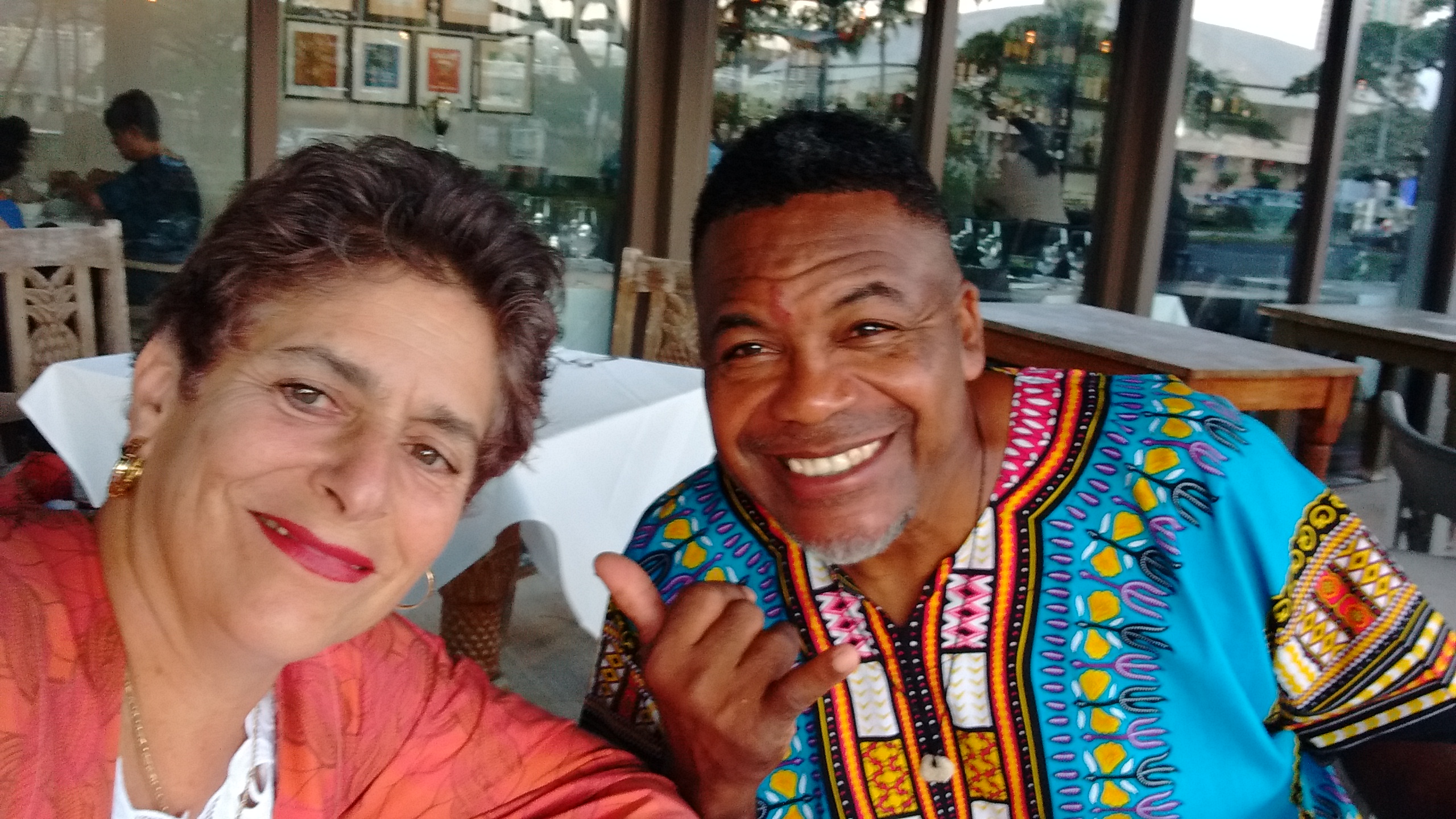
Elizabeth and her husband Barney
BW: Were many women on this path in Peru when you were there?
EJ: There was no one else on the path I was on, man or woman. I met some spiritual seekers in Cuzco, but no one looking for Andean Mysticism, almost no one had even heard of it yet. It was the beginning.
BW: In one of your books you describe how you travelled far into the mountains to meet this incredible Andean teacher and some people almost had frostbite. How physically gruelling was your Peruvian adventure?
EJ: The High Andes Mountains are VERY physically challenging. Lucky for me I was young and strong. The altitude in Cuzco didn’t bother me at all, but going over those 22,000 foot passes to go to the Last Inka Village in Peru, to visit the Q’ero Nation was pretty tough. It makes you appreciate how easy we have it on the physical level, and how some humans can adapt to the most difficult and harsh climates in the world. But the stunning beauty, the majesty of the Glacier-capped Andes, and the sense of adventure, You just can’t buy that! I rode in the back of a lot of trucks with pigs and chickens and goats, on roads that would scare the heck out of most Westerners. I also got robbed 4 times before I learned how NOT to get robbed, but this is just part of traveling in developing countries, or really traveling anywhere. You have to understand the place and how to handle yourself. Peru is totally different now of course, and especially Cusco, because there are some 2.5 million tourists a year, nearly 10 times more than when I lived there. Tourists rarely get robbed nowadays. Somehow, I felt at ease all the time, as if I had a guardian angel watching out for me. I believe that if you are following your true path, the universe conspires to help and support you.
BW: What was the most valuable thing you have learned while following your Andean adventure and your spiritual path?
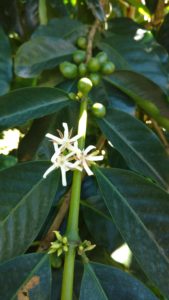
Flowering coffee flowers on Elizabeth’s farm in Hawaii
EJ: The single most valuable thing I learned and continue to learn from my Andean adventure is how to be TRULY happy and to live my life like an empowered and feminine woman. This means so many things. First, it means how to be harmonized and energized by Mother Nature. She is an endlessly giving source, not only of resources like food, water and shelter, but of love and wisdom and pure living energy. She is the model mother who teaches me how to be generous, how to love unconditionally, how to mother my own children, how to be endlessly creative. I wake up happy and energized everyday, and I think that is saying something! And I had to learn how to harmonize my organic farm business life and family with my spiritual destiny. At first, I didn’t believe this was possible, but it is! Many women feel they have to choose, career or family. Many women feel they have to be like men to succeed. I have two gorgeous teenage boys that I am very proud of and they grew up on our family farm, as well as globe-trotting with their bestselling author mom teaching the spiritual wisdom of the Inkas around the world. The practical and spiritual tools of the Inka have given me the capacity to live the life I dreamed of. My husband and I run our organic farm, and I continue to write, teach, heal, and mother, as well as run our non-profit that gives back to some of the materially poorest and spiritually richest folks on Earth, the Q’ero Indians of Peru. The Inka prophecies and spiritual practices they have guarded for centuries, give direct instructions on how to evolve as human beings within your family, with your partner, and within your community. In particular the teaching that there is no such thing as “good” and “evil” just like in Nature there are no Good and Evil plants or animals. Everything has a use and a purpose and it is up to us humans to figure that out. They have given my life so much meaning and purpose that it’s only right to give back to them and support their kids.
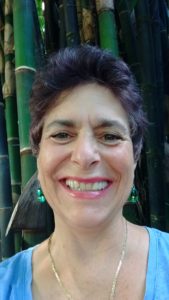
Elizabeth Jenkins
BW: How does Inca understanding of the World differ from ours? What do you think is our place in Nature?
EJ: Science is great because in its pure form, it is the accurate observation of Nature. We think of ourselves as a science and fact based culture, but we are missing a few pieces of this puzzle. We don’t understand our place within Great Nature. We don’t understand how we belong to Nature. The Inkas understand this in spades! They have a developed knowledge of how humans are intimately designed to collaborate with Nature. Take the simple act of breathing for example. We are biologically designed to inhale what plants, trees, algae, and bogs exhale, oxygen! And we exhale what they need in a perfect life giving exchange. The Inkas call this AYNI, sacred reciprocity: to give and receive with all your heart. This is a law in their communities that they would never break. The community goes to plant the fields of each family in a rotation, and would never break this law because they witness a profound interdependence that we have forgotten. They come from a “No Market” economy. I wonder if we can even conceptualize that. No shopping! Not even a barter system. The Inka and the Hawaiians survived and thrived for centuries through a “GIFTING” culture.
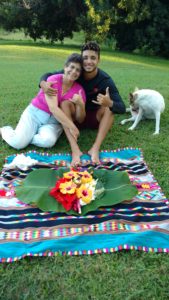
Elizabeth and her son with spiritual offerings for his graduation
Let me say that the Inka worldview confirmed a part of my own, and for many of us that seek deeper answers to life’s questions. We know that there is more to the world than what is materially visible. While I was perhaps not able to articulate it well at 28 years old, I was very aware that the world was (is) made of living energy, something that modern physics confirms. However, the Inka philosophy emphasizes our human interactions with the energy world, that you can perceive these energies in people and places. Our science has not yet understood how we are part of the great interplay of the energies found in Nature. We are finally learning that we cannot observe from the outside without influencing the experiment. This is the big difference between our culture and the Andean culture. Their science and religion is one and the same thing, and it is personal and intimate. The Andean tradition teaches that since everything is made of living energy, trees, humans, rocks, rivers, wind, then everything can be spoken to. This gives you SO many more friends and so many more conversations that can be had. The world just opens up and becomes a much more fun and magical place. This worldview also comes with a responsibility, since everything is alive, everything deserves respect and to be cared for. Clearly, it is in our best interest to respect the Earth and the Air and the Waters and to take care of them. With Global Warming we are learning hard lessons about this now.
BW: Do you think the Inca have a solution to our global issues relating to everything from deforestation to Global warming?
EJ: Yes! I have just experienced part of that solution to climate change. First, the tradition teaches that when we humans break the laws of nature, we create something called “heavy energy”. This heavy energy gathers and has nowhere to go and starts to create chaos with the weather. This heavy energy that is created from wrong actions, disrespect, breaking the law of sacred reciprocity, causing intentional harm, etc., can indirectly cause droughts, storms, hurricanes. Luckily, since only humans create this heavy energy, we also have the capacity to clean it up. We did a lot of that during the hurricane and it was diverted and weakened as a result. There was no loss of life.
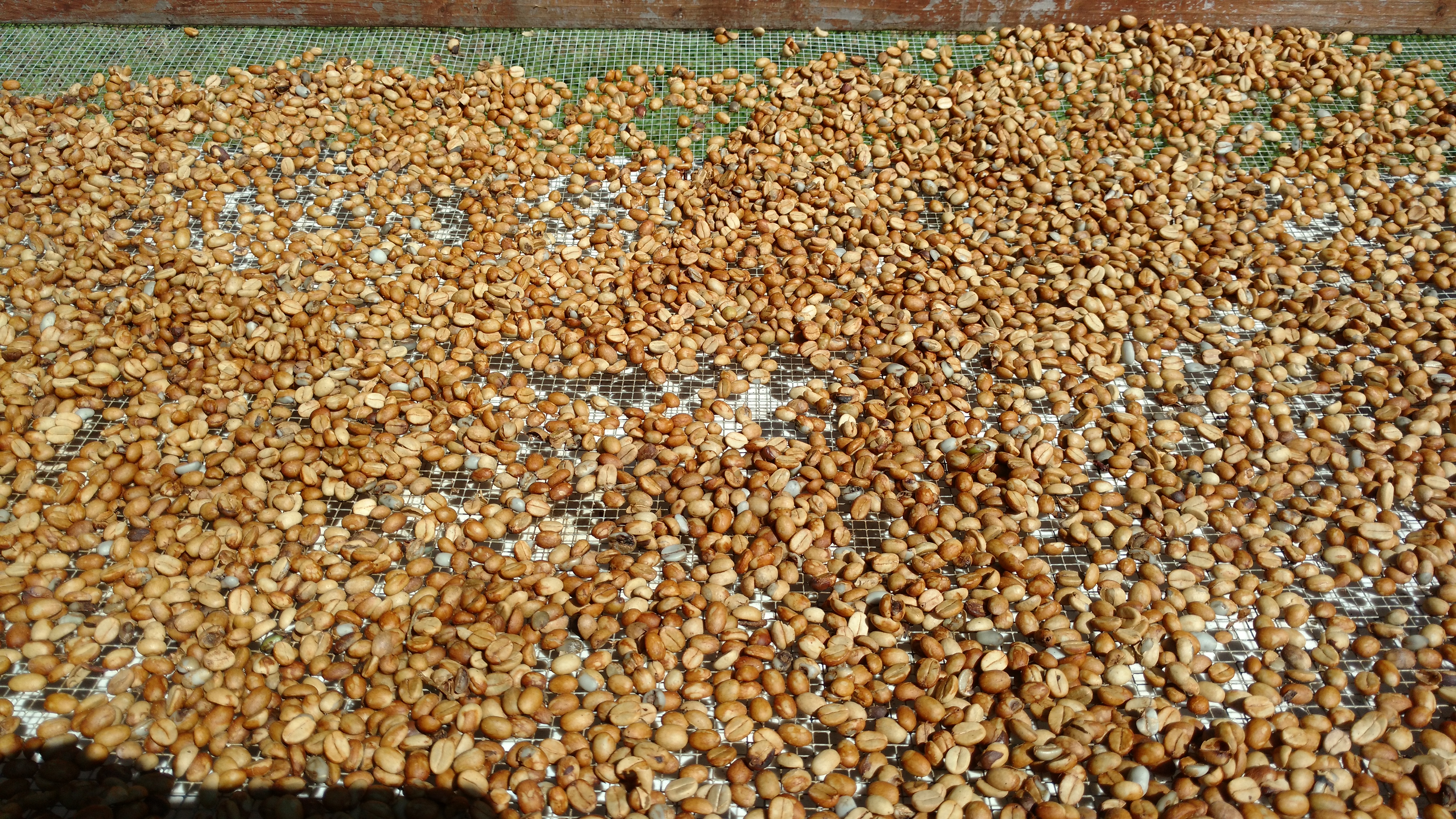
Coffee drying on the farm
BW: How many books about your experience with the Incas have you written so far?
EJ: I have written a total of 3 books and collaborate on one anthology. My books are: The Return of the Inka (first published as Initiation by Putnam) Journey to Q’eros: Golden Cradle of the Inka, and The Fourth Level: Nature Wisdom Teachings of the Inka.
BW: Is there another book coming? You just wrote a novel?
Yes, I have several more books in the works, a couple of practical guides on how to create the Inka Power Bundle that some call the Mesa, another on Offerings, and another on my favorite topic, MISKAYANI. Miskayani is the Mystical Sacred City of Feminine power known in the Q’ero Myth to be the counterpart to Paititi—or the Lost City of Inka Gold. I have also been asked to write a screenplay based on my first book that I am currently working on, as well as a novel dictated to me by a tree.
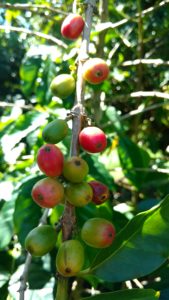
Ripening coffee cherries
BW: Apart from being a Psychologist, a spiritual teacher and a writer, you are also an organic farmer. Many of our readers run their own small to medium businesses. Tell us a bit more about your farm in Hawaii. What do you grow? How did this idea start? How does business mix with spiritual teaching?
EJ: I guess I answered this a bit earlier, but more about the farm. We grow organic macadamia nuts, coffee, every citrus: lemons, limes, oranges, tangerines, tangellos, and grapefruit. We have 8 varieties of avocados, bananas, guava, and white pineapple. We also have a heard of 60 sheep and a donkey named Eddie Murphy. Organic farming is one of the most benevolent businesses a person can create. It is also the perfect place to practice the Inka philosophy and tradition. We host Paqo Apprentice Month long seminars, as well as week-long seminars with the Q’ero at our farm every year. And of course I lead groups to Peru every year in the Fall.
BW: Is there anything you wish to tell our readers as a message? Something you feel is important in the 21st century? Or perhaps something important for a working business mum?
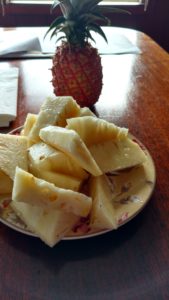
Juicy white pineapple from Elizabeth’s organic farm
EJ: Yes! You can do it! Never give up your dreams, especially if they serve the community in some way, you can find the way to make them happen. If you receive you must give, and if you give you can be SURE you will receive. Come and play with us and I will teach you how to always have enough energy to accomplish your biggest dream. When we collaborate together with Mother Nature, there is nothing we cannot accomplish!
Thank you Elizabeth. We very much look forward to your next adventure. Please make sure you keep us posted!
If you wish to attend an advanced shamanic Andean course with Elizabeth Jenkins in the UK this summer please visit Mindfulness Concept page as Elizabeth is coming for Summer Solstice 2019 to Windsor, Berkshire for two and a half day intensive Inka Tradition training. All info can be found here
https://www.mindfulnessconcept.co.uk/courses-2019
Look out for our Amazing Women’s reads soon where some of Elizabeth’s books will be discussed. Readers are invited to gift any donations to Elizabeth’s Wiraqocha Foundation. With this article we are starting our new Spirituality section.
Interview by Billie Krstovic

